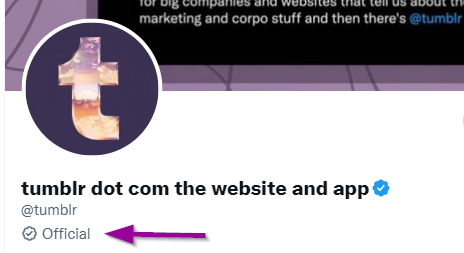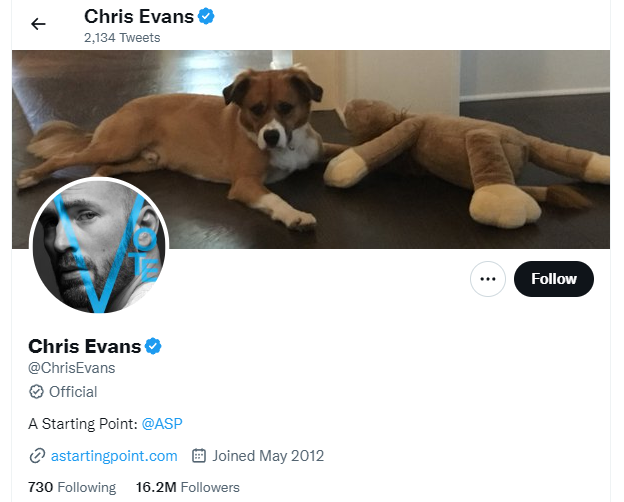
As Twitter is about to scrap its verification system for individuals later today, it has added a new verification system for brands. See this from social blogging site @Tumblr. The new "official" badge appears both on the main profile and in timeline tweets. 



Some brands have them, some don't.
Facebook: no
Amazon: yes
The White House: yes
10 Downing Street: no



Facebook: no
Amazon: yes
The White House: yes
10 Downing Street: no




Not just brands: individuals are getting them too.
Britney Spears, Boris Johnson, Barack Obama. Chris Evans.



Britney Spears, Boris Johnson, Barack Obama. Chris Evans.




I don't know how they're deciding who gets the 'official' tag and who doesn't. I'd note that big voices on the Right like @benshapiro don't have one. Nor does CNN's @andersoncooper. Shapiro's Daily Wire doesn't have one. CNN's Anderson Cooper 360 show does. 







I don't have one, unsurprisingly. #unofficial
Some journalists got a grey tick, some didn't. Doesn't seem to be any obvious rhyme or reason to it. Perhaps there are objective or algorithmic criteria because I can't believe this was done manually.
Some obvious people who should have got one but didn't, including @HillaryClinton. But I'd guess they're still rolling them out and it's all in flux.
... And it's gone. Twitter seems to have removed the "official" grey tick from all profiles.
• • •
Missing some Tweet in this thread? You can try to
force a refresh





